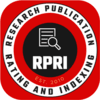Impact of Socio-Economic factors of Residents on Solid Waste Management in two zones of BBMP.
Keywords:
Solid Waste Management, Community Participation, ResidentsAbstract
This research paper examines the impact of socio-economic factors of residents on solid waste management in two zones namely Bommanahalli zone and south zone of BBMP in the Bengaluru city. Today the most important subject that affects and worries mankind is the issues concerned with solid waste management in the BBMP. Community participation has a direct bearing on efficient solid waste management. The municipal authorities have tried to mobilize the community and educate residents on the rudiments of handling waste and proper practices of storing it in their own bins at the household, shop and establishment level. Residents assume that waste thrown on the streets would be picked up by the municipality through sweeping. Solid waste management cannot be successful without the involvement of all residents who have a vital role to play in successful implementation of scheme. It is worthwhile to examine some of the important stakeholders in this regard; residents play a significant role in bringing any changes and framing the policies, strategies and regulations to solve the solid waste problem in the zones. Residents of that particular region would understand the situation and analyses the problems faced by them over a period of time. So those in both zones of research area 320 residents are randomly selected to know their socio-economic status with respect to their age, status of resident, marital status and educational qualification. It also helps us to assess the attitudes of the residents, behaviour, and sensitivity towards solid waste management and to examine the socio-economic factors responsible for worst situation of municipal waste, working system of BBMP in managing the solid waste. It is on this note that the study attempts an examination of the impact of socio-economic factors on solid waste management by speculating the situation of BBMP.
References
Altaf, M. A. (1996). Household demand for improved solid waste management: A case study of Gujranwala, Pakistan. 857-868: World Development Vol -24, No.5.
Boyle, C.A (2000), Solid Waste Management in New Zealand, waste management, Waste Management 20 (2000) 517-526.
Bryman, A, (2008). Social Research Methods (3rd ed.), Oxford university Press Publication.
Chandrappa, R. and Das, D.B., (2012). Solid waste management principles and practice, Springer Publication.
J K Saha, N. P. (2010). An Assessment of Municipal Solid Waste Compost Quality Produced in Different Cities of India with the perspective of Developing Quality Control Indices. Bhopal: Waste Management.
Liu C, W. X. (2011). Factors Influencing Municipal Solid Waste Generation in China: A multiple Statistical Analysis study. International Solid Wastes and Public Cleansing Association.
Mathew, V. (2003). Solid waste management in Kottayam town. KRPLLD, CDS.
Naveen BP, Sitharam TG, Sivapullaiah PV (2014) Status of solid waste management in bengaluru and review of solid waste techniques adopted. International conference on waste management for sustainable development, Kerala, India.
Rajput (2009), Study on relationship between Municipal Solid waste generation and Economic development, Research Paper.
Sasikumar K, Krishna SG (2014) Solid Waste Management. PHI Learning Private Limited, New Delhi.
Van Houtven, G. (November 1999). Househol Behaviour under Alternative Pay- As-You-Throw Systems for Solid Waste Disposal. Land Economics, 515-537.
Wertz, K. L. (1976). Economic Factors influence Households Production Refuse. Journal of Environmental Economics and Management 2(3), 263-72.









